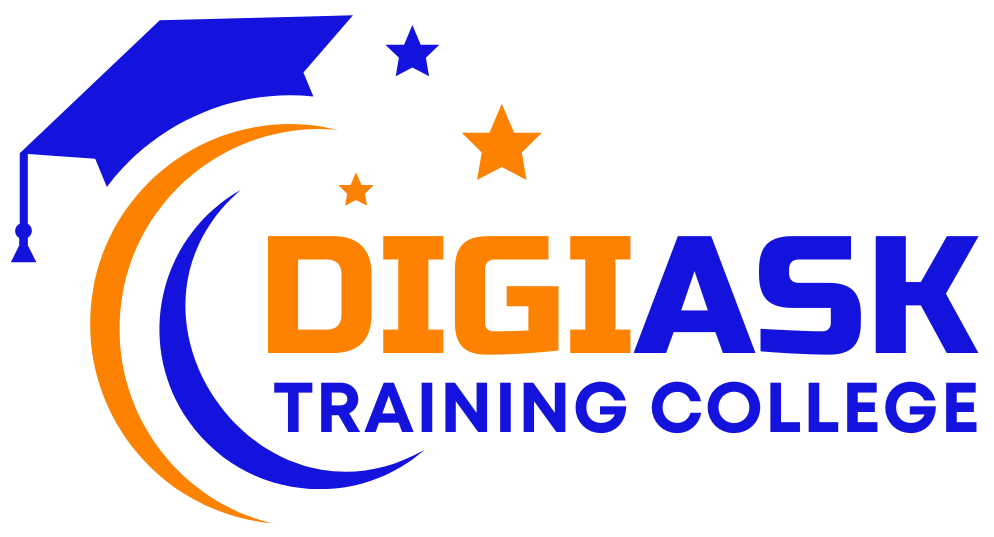The Evolving Landscape of Digital Marketing
In today’s hyperconnected world, understanding which skills are required for digital marketing has become essential for professionals seeking to thrive in this dynamic field. Digital marketing has transformed from a supplementary business function into a cornerstone of organizational success, with companies increasingly investing in specialists who possess the right combination of technical expertise and soft skills. As businesses navigate increasingly complex digital ecosystems, the demand for skilled digital marketers continues to surge across industries. The digital marketing landscape evolves rapidly, with new platforms, algorithms, and consumer behaviors emerging regularly, necessitating professionals who can adapt quickly and leverage cutting-edge strategies to maintain competitive advantages.
Core Technical Skills for Digital Marketing Professionals
Search Engine Optimization (SEO) Expertise

SEO remains the bedrock of effective digital marketing, requiring professionals to understand both technical and content-based optimization strategies. Modern SEO specialists must possess knowledge of keyword research methodologies, on-page optimization techniques, and technical SEO principles including site architecture, schema markup implementation, and mobile optimization. Additionally, they must understand how to analyze and interpret search analytics data to identify opportunities for improvement and track performance over time. As search algorithms continue to evolve with AI integration, SEO specialists must stay abreast of changes to E-E-A-T (Experience, Expertise, Authoritativeness, Trustworthiness) principles and user intent optimization to ensure content remains visible and relevant.
Content Marketing Proficiency
Content marketing expertise encompasses multiple disciplines, requiring professionals to develop strategic content plans that align with business objectives while meeting audience needs. This includes proficiency in content creation across various formats (articles, videos, podcasts, infographics), understanding of content distribution channels, and ability to develop editorial calendars that maintain consistency while capitalizing on trending topics. Successful content marketers also possess strong storytelling abilities, enabling them to craft compelling narratives that resonate with target audiences while reinforcing brand messaging. Furthermore, they must understand content performance metrics to evaluate effectiveness and continuously refine their approach based on data-driven insights.
Social Media Marketing Mastery
Effective social media marketing requires comprehensive knowledge of platform-specific algorithms, audience behaviors, and content formats. Digital marketers must understand how to develop platform-appropriate strategies that balance organic engagement with paid promotion while maintaining brand consistency across channels. They must possess community management skills to foster meaningful interactions with followers, crisis management capabilities to address negative feedback constructively, and analytical abilities to measure campaign performance beyond vanity metrics. As social platforms increasingly prioritize authentic engagement over promotional content, marketers must cultivate the ability to create genuine connections through value-driven content strategies that encourage meaningful participation from their audience.
Pay-Per-Click (PPC) Advertising Skills
PPC specialists need technical expertise in campaign structure, keyword selection, bid management, and audience targeting across various platforms including Google Ads, Microsoft Advertising, and social media advertising networks. They must understand how to develop compelling ad copy that drives clicks while maintaining relevance to search intent, design landing pages optimized for conversion, and implement tracking mechanisms to measure campaign effectiveness. Additionally, PPC professionals require strong analytical skills to interpret performance data, identify optimization opportunities, and allocate budgets effectively to maximize return on ad spend (ROAS). With the growing complexity of advertising platforms, proficiency in automation tools and understanding of machine learning algorithms has become increasingly valuable for campaign optimization.
Data Analytics and Interpretation
Modern digital marketing demands strong data analytics capabilities to transform raw information into actionable insights. Marketers must understand how to configure analytics platforms like Google Analytics 4, establish meaningful KPIs aligned with business objectives, and create custom reporting dashboards that facilitate data-informed decision making. They should possess the ability to conduct A/B testing, segment audience data effectively, and analyze user behavior patterns to identify optimization opportunities. Furthermore, as privacy regulations evolve, marketers must understand how to collect and utilize data ethically while maintaining compliance with relevant legislation such as GDPR, CCPA, and emerging privacy frameworks.
Essential Soft Skills for Digital Marketing Excellence
Strategic Thinking and Planning
Strategic thinking represents one of the most valuable skills in digital marketing, enabling professionals to develop comprehensive marketing plans that align with organizational objectives. This includes the ability to conduct thorough market research, identify target audience segments, analyze competitive landscapes, and establish measurable goals with appropriate timelines. Strategic marketers possess the foresight to anticipate industry trends, evaluate emerging technologies for potential implementation, and develop contingency plans for various scenarios. They understand how to balance short-term tactical execution with long-term brand building initiatives to create sustainable marketing ecosystems that deliver consistent results while remaining adaptable to changing market conditions.
Creative Problem-Solving Abilities
The digital marketing landscape presents unique challenges that require innovative solutions. Marketers must cultivate creative problem-solving skills that enable them to overcome obstacles, from algorithm changes to budget constraints, through unconventional approaches. This includes lateral thinking abilities to connect seemingly unrelated concepts, resilience to persist through trial-and-error processes, and resourcefulness to maximize results with available resources. Creative problem-solvers in digital marketing excel at developing workarounds for technical limitations, identifying untapped marketing opportunities, and reimagining campaign approaches when initial strategies underperform. By embracing experimentation and viewing challenges as opportunities for innovation, these professionals drive continuous improvement within marketing operations.
Effective Communication
Communication excellence in digital marketing transcends basic writing skills, encompassing the ability to convey complex concepts clearly to diverse stakeholders. Marketers must communicate effectively with technical teams, executive leadership, creative professionals, and external partners, adapting their language and presentation style to each audience. They require strong writing capabilities for content creation, verbal articulation for presentations and meetings, and visual communication skills for developing comprehensive marketing materials. Additionally, marketers need active listening abilities to understand client needs, interpret feedback constructively, and collaborate effectively with team members. In client-facing roles, communication skills extend to negotiation, expectation management, and the ability to translate technical marketing concepts into business outcomes that resonate with decision-makers.
Looking to Enrol for a Digital Marketing course?
Adaptability and Continuous Learning
Perhaps no skill proves more crucial in digital marketing than adaptability—the capacity to embrace change and continuously expand one’s knowledge base. The field evolves at an unprecedented pace, with platform updates, algorithm changes, and emerging technologies regularly disrupting established practices. Successful marketers demonstrate intellectual curiosity that drives self-directed learning, allocating time for professional development through industry publications, online courses, webinars, and experimental projects. They approach new tools and methodologies with openness, quickly assimilating information and applying it to current strategies. This adaptability extends to cross-functional learning, with the most valuable marketers developing working knowledge across multiple marketing disciplines while maintaining specialized expertise in their primary focus areas.

Specialized Digital Marketing Skills
Email Marketing and Automation
Email marketing remains one of the highest-ROI digital channels, requiring specialized skills in list management, segmentation strategies, and automation workflows. Professionals must understand how to craft compelling subject lines that improve open rates, design visually appealing templates that render properly across devices, and develop personalized content that drives engagement. They need technical knowledge of email service providers (ESPs), deliverability factors affecting inbox placement, and compliance requirements for permission-based marketing. Advanced email marketers excel at developing sophisticated automation sequences triggered by user behaviors, implementing A/B testing methodologies to optimize performance, and analyzing comprehensive email metrics to refine campaigns continuously. As email marketing evolves, understanding of interactive elements, AMP for email, and integration with broader marketing ecosystems becomes increasingly valuable.
Video Production and Marketing
With video dominating digital content consumption, marketers increasingly need skills in video production and distribution strategies. This includes understanding various video formats (educational, promotional, testimonial, live streaming) and their appropriate applications, technical knowledge of production equipment and editing software, and storytelling capabilities that maintain viewer engagement. Video marketers must comprehend platform-specific requirements and audience preferences across YouTube, TikTok, Instagram Reels, and other video-centric channels. They need optimization skills for video SEO, including keyword research for video content, thumbnail design principles, and metadata optimization. Additionally, they require analytical capabilities to interpret video performance metrics, from audience retention rates to engagement patterns, enabling data-driven refinement of video strategies.
Mobile Marketing Specialization
As mobile devices account for increasing proportions of digital interactions, specialized mobile marketing skills have become essential. This includes understanding mobile user behaviors, designing touch-friendly interfaces, and optimizing for various screen sizes through responsive design principles. Mobile marketers must comprehend location-based marketing strategies, in-app advertising options, and mobile SEO considerations that affect visibility in mobile search results. They require knowledge of mobile app marketing, including app store optimization (ASO), user acquisition strategies, and retention techniques through push notifications and in-app messaging. Furthermore, they need technical understanding of mobile page speed optimization, accelerated mobile pages (AMP), and progressive web applications (PWAs) to deliver optimal user experiences across devices.
User Experience (UX) Design Principles
Digital marketers must understand fundamental UX design principles to create intuitive, friction-free digital experiences that facilitate conversion. This includes knowledge of information architecture, ensuring logical content organization and navigation structures that guide users naturally toward desired actions. They need comprehension of visual hierarchy principles to emphasize important elements appropriately, understanding of cognitive load theory to prevent overwhelming users with excessive information, and familiarity with accessibility standards that ensure content remains usable for all audience segments. Marketers should understand how to interpret heat maps, session recordings, and user testing feedback to identify experience improvements that enhance engagement and conversion metrics. By applying UX principles to marketing materials, professionals can create seamless customer journeys that naturally progress from awareness to conversion.
Emerging Digital Marketing Skills for Future Success
Artificial Intelligence and Machine Learning Applications
As AI transforms digital marketing, professionals must develop skills related to AI implementation and management. This includes understanding how to leverage AI-powered tools for content creation, audience segmentation, predictive analytics, and personalization at scale. Marketers should comprehend the fundamentals of machine learning algorithms that power recommendation engines, programmatic advertising, and chatbot interactions. They need skills to train and optimize AI systems with quality data inputs, provide effective oversight to machine-generated content, and integrate AI solutions with existing marketing technology stacks. Additionally, marketers must develop ethical frameworks for AI implementation, ensuring algorithmic decisions remain transparent, unbiased, and aligned with brand values. As AI capabilities continue expanding, the ability to identify appropriate applications and manage human-AI collaboration will become increasingly valuable.
Voice Search Optimization
The proliferation of voice-activated devices necessitates specialized skills in voice search optimization. Marketers must understand the distinct patterns of voice queries, which typically use natural language questions rather than keyword fragments common in text searches. This requires knowledge of conversational keyword research, FAQ content development, and structured data implementation that enables featured snippet acquisition. Voice search specialists need familiarity with voice-specific platforms like Google Assistant, Amazon Alexa, and Apple Siri, understanding their unique algorithms and response patterns. They must optimize content for local voice searches, which comprise a significant percentage of voice queries, through comprehensive local SEO strategies. By anticipating user questions and providing concise, authoritative answers, marketers can position their content for voice search visibility in increasingly competitive environments.
Augmented Reality and Virtual Reality Marketing
As AR and VR technologies become more accessible, marketers must develop skills related to immersive experience creation and promotion. This includes understanding use cases for AR/VR across different industries, from virtual product demonstrations to immersive brand storytelling opportunities. Marketers need technical knowledge of AR development platforms like ARKit and ARCore, comprehension of 3D modeling principles, and familiarity with VR content distribution channels. They should understand how to measure engagement within immersive experiences, develop appropriate calls-to-action that maintain immersion, and integrate AR/VR campaigns with broader marketing strategies. As these technologies continue evolving, marketers who can identify practical applications that enhance customer experiences rather than serving as novelty features will deliver substantial competitive advantages for their organizations.
Looking to Enrol for a Digital Marketing course?
Blockchain Marketing Applications
Blockchain technology presents emerging opportunities for digital marketers who understand its potential applications. This includes knowledge of blockchain-based advertising models that reduce fraud and increase transparency, tokenization strategies that incentivize customer engagement, and decentralized applications that create new marketing channels. Marketers should understand how smart contracts can automate promotional activities like loyalty programs, affiliate marketing payments, and content licensing agreements. They need familiarity with blockchain verification systems that authenticate products and marketing claims, addressing growing consumer demand for transparency. Additionally, they should comprehend how blockchain technologies may transform data privacy models, potentially requiring new approaches to customer data collection and utilization. While blockchain marketing remains in early stages, forward-thinking professionals who understand its fundamental principles will be positioned to leverage these technologies as they mature.

Integration of Digital Marketing Skills
Cross-Channel Marketing Coordination
Modern digital marketing requires professionals who can orchestrate cohesive strategies across multiple channels rather than treating each platform as an isolated entity. This demands understanding of customer journey mapping to identify appropriate touchpoints, attribution modeling to evaluate channel contributions, and messaging consistency that reinforces brand positioning regardless of platform. Cross-channel marketers excel at developing integrated campaigns that leverage the unique strengths of each channel while maintaining narrative continuity throughout the customer experience. They understand how to sequence marketing communications logically across channels, ensuring each interaction builds upon previous engagements to create cumulative impact. By coordinating efforts across specialized teams and aligning metrics across channels, these professionals create synergistic marketing ecosystems where each component amplifies the effectiveness of others.
Marketing Technology (MarTech) Stack Management
As marketing technology proliferates, the ability to architect and manage complex MarTech stacks has become a critical skill. This requires understanding of various technology categories including CRM systems, marketing automation platforms, content management systems, analytics tools, and emerging technologies like customer data platforms (CDPs). MarTech specialists must evaluate technology solutions against business requirements, implement systems effectively, and ensure proper integration between platforms to prevent data silos. They need change management capabilities to facilitate technology adoption across marketing teams, documentation skills to develop standardized operating procedures, and technical troubleshooting abilities to address inevitable integration challenges. Furthermore, they must balance technology implementation with ROI considerations, ensuring investments deliver meaningful improvements to marketing performance rather than introducing unnecessary complexity.
Conversion Rate Optimization (CRO)
CRO expertise combines analytical thinking with psychological understanding to systematically improve conversion metrics across digital properties. Professionals must master quantitative research methods including funnel analysis, cohort analysis, and statistical significance testing alongside qualitative techniques like user interviews, surveys, and usability testing. They need comprehensive knowledge of testing methodologies, from simple A/B tests to multivariate experiments and bandit testing approaches. CRO specialists understand psychological principles that influence decision-making, including social proof, scarcity, authority, and cognitive biases that affect user behavior. They possess technical implementation skills for testing tools, heat mapping solutions, and analytics platforms necessary for data collection. By applying structured optimization frameworks rather than making intuitive changes, these professionals create continuous improvement cycles that incrementally enhance conversion metrics over time.
Building Comprehensive Digital Marketing Competency
Developing T-Shaped Skill Profiles
The most valuable digital marketers develop T-shaped skill profiles, combining broad understanding across multiple marketing disciplines with deep expertise in specific areas. This approach enables professionals to collaborate effectively with specialists from other domains while maintaining focused excellence in their core competencies. Developing this skill profile requires strategic learning pathways that balance specialization with cross-functional knowledge acquisition. Organizations benefit from identifying each team member’s natural strengths and interests, then creating development plans that deepen these primary skills while systematically building foundational knowledge in complementary areas. This balanced approach creates versatile marketers who can lead specialized initiatives while understanding how their work integrates with broader marketing strategies, facilitating better collaboration and more cohesive execution across marketing functions.
Continuous Professional Development Strategies
Given digital marketing’s rapid evolution, establishing structured approaches to continuous learning represents an essential meta-skill for professionals in this field. This includes developing personal learning systems such as dedicated time blocks for skill development, curated information sources that provide reliable industry updates, and peer learning communities that facilitate knowledge exchange. Digital marketers should establish systematic approaches to skill gap analysis, regularly evaluating their capabilities against emerging industry requirements and prioritizing learning opportunities accordingly. Organizations can support this through formal mentorship programs, learning stipends for courses and certifications, and internal knowledge-sharing initiatives that disseminate specialized expertise across teams. By treating learning as a non-negotiable professional responsibility rather than an occasional activity, marketers maintain relevance in an industry where yesterday’s best practices quickly become obsolete.
The Future-Ready Digital Marketer
The comprehensive skill set required for digital marketing success continues expanding as technologies evolve and consumer behaviors shift. While technical proficiencies in channels and platforms provide the foundation, the most successful digital marketers complement these with advanced soft skills including strategic thinking, adaptability, and effective communication. As digital ecosystems grow increasingly complex, integration skills that connect specialized knowledge areas into cohesive strategies become particularly valuable. Organizations should prioritize both hiring for and developing balanced skill portfolios that combine depth in critical specializations with breadth across complementary domains. By fostering cultures of continuous learning and cross-functional collaboration, businesses can build marketing teams capable of navigating digital transformation effectively while delivering consistent performance improvements in an ever-changing landscape.
